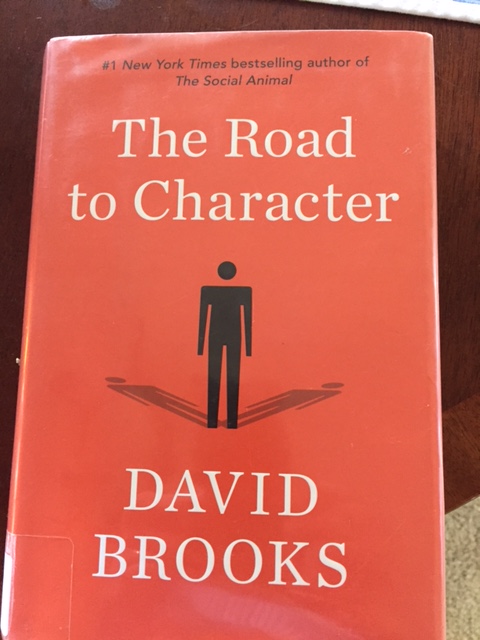
For those living in the United States this week, it has been a surreal experience to observe a continued unfolding tragedy in Puerto Rico (and other islands in the Caribbean as well as Florida and Texas) due to the latest hurricanes while hearing a national discussion on whether professional athletes are showing enough respect for the flag before sporting events. Not to mention many other global crises, including now up to half a million Rohingya Muslims having fled Myanmar for Bangladesh, and a Kurdish independence vote that could unleash further hell in the Middle East.
But also these last two weeks there has been showing several nights a week on PBS (Public Broadcasting System) the incredibly well-done series by Ken Burns and Lynn Novick on the history of the Vietnam War. (If you didn’t catch it, make sure you see the encore showings on PBS, or future internet offerings.) I also just finished an excellent book by David Brooks, New York Times columnist, titled The Road to Character. Brooks describes in this book that character is formed in many different ways, and includes a foundational understanding that flaws and embracing them in our lives is part of that character. He profiles several stories of well-known and not so well-known people, like President Eisenhower, George Marshall, Frances Perkins, Dorothy Day and others. All people who made an impact on their world, but all also with sometimes very strong flaws and weaknesses.
As I watched virtually every episode of the Vietnam War, and saw the masterful way Burns and Novick wove the stories of many veterans of both sides of the conflict, it made me think again of flaws and love for a nation. Is it possible to see so deeply the flaws of a nation, in this case the United States, however misguided, continuing to engage in a conflict that appeared un-winnable, and yet to still love that very nation? What really is patriotism? Is it to believe your country can do no wrong, or at least act like it in the face of facts to the contrary? I was a teenager when the Vietnam War ended, so never faced having to serve my country there. I have read much about it since then, and the unimaginable suffering on both sides, with the US having 58,000 plus dead and hundreds of thousands injured, and the Vietnamese deaths, North and South, perhaps totaling over 3 million dead. Burns and Novick bring it all out so powerfully.
I have lived over half my life outside the United States, so perhaps I don’t feel some of these things as deep as many others. But I feel like I can love my country and yet see its deep flaws. I can see the strengths of the US while also seeing the weaknesses. I sing my country’s national anthem aware of its history of glorious freedom, both achieving it as well as helping others. But that history is parallel to acts of oppression and evil to African -Americans, Asian immigrants, Native Americans, and nations around the world. Both are true and both can be faced with joy and sorrow. Celebration and repentance.
I don’t have a problem with those athletes engaging in protest. I have a greater problem with people that refuse to see the flaws of a country, or their own life. I think in time there will be other ways the protest will happen, and many of those fans “boycotting” games will return. The national and global conversation over racism and injustice will go on. And it should. We are a deeply flawed nation, yet a deeply blessed nation. Both are true, and both are true of every nation.
In a strange and moving way, I came away from watching all the horror of what happened in Vietnam with a greater love for my country and those who served there. And also for Vietnam and her people. Somehow seeing the flaws of idealism and striving for a better life doesn’t make me hate a people or nation, but want to love it more. As Michael Gerson, columnist for the Washington Post, wrote so eloquently last week about the protests and the American flag, “This is the flag that drapes the coffins of the honored dead on their final homeward trip, to a flawed nation still worthy of their sacrifice. The extraordinary achievement of America’s founders was to elevate a set of ideals that judged (in many cases) their own hypocritical conduct.”
A “flawed nation worthy of sacrifice”. Just like we are a flawed people, and I am a flawed person. Yes, I will continue to watch NFL football. I am so happy we have a nation where people can freely protest in the ways they choose. Perhaps I would not choose some of the forms of protest, but it is not up to me. What is up to me is to face fully the flaws of my own life, my people, my nation. And to seek in repentance where I have hurt others, seeking together with you to build a better world, however flawed.